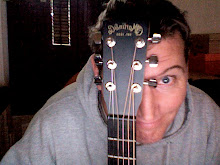October 1
One down, two more to go.
So the general consensus was that John Kerry "won", whatever that really means. There doesn't seem much doubt that the Senator was the more accomplished debater - we knew that to an extent going in.
There was no knockout punch from either man. Kerry didn't have a "Bentsen moment" and Bush didn't blow it. If anything, last night will just make anyone who might be wavering take a closer look, and Kerry at least succeeded in appearing presidential.
There seemed clear differences in poise and confidence - exacerbated by television's side-by-side and cutaway shots, which left a visual impression of Kerry as at ease, and Bush as discomforted and occasionally floundering, even more than his actual answers indicated.
However, to the president's advantage, the splitscreen often showed Kerry nodding in agreement to Bush's comments. Kerry appeared much more serious when he was making notes, or looking straight at moderator Jim Lehrer.
The audience for the second debate will now likely go up, whereas in 2000 it went down after the opening Bush-Gore salvo. Anyone who was already a Bush supporter would probably not have been motivated to switch, but Kerry may have picked up a few undecideds.
The ink-stained press, as Howard Kurtz observes, gave the nod to the challenger, while many of the now mainstream political blogs like the Daily Kos gave varied takes - often focusing in on specific questions or statements by either candidate - while there was much analysis of how the performances played with various demographic sections.
But, really, sometimes you just have to wonder at some focus groups. (Maybe seemed like a good idea at the time, great headline though...)
In all, though, it was occasionally reminiscent of that classic SNL image where Jon Lovitz looks at Dana Carvey and says: "I can't believe I'm losing to this guy!" (also cited here in an Al Franken transcript that's worth revisiting...)
And finally, try this debate montage from the Democratic National Committee, or this bizarre, almost terrifyingly surreal nonsense from the GOP.
One down, two more to go.
So the general consensus was that John Kerry "won", whatever that really means. There doesn't seem much doubt that the Senator was the more accomplished debater - we knew that to an extent going in.
There was no knockout punch from either man. Kerry didn't have a "Bentsen moment" and Bush didn't blow it. If anything, last night will just make anyone who might be wavering take a closer look, and Kerry at least succeeded in appearing presidential.
There seemed clear differences in poise and confidence - exacerbated by television's side-by-side and cutaway shots, which left a visual impression of Kerry as at ease, and Bush as discomforted and occasionally floundering, even more than his actual answers indicated.
However, to the president's advantage, the splitscreen often showed Kerry nodding in agreement to Bush's comments. Kerry appeared much more serious when he was making notes, or looking straight at moderator Jim Lehrer.
The audience for the second debate will now likely go up, whereas in 2000 it went down after the opening Bush-Gore salvo. Anyone who was already a Bush supporter would probably not have been motivated to switch, but Kerry may have picked up a few undecideds.
The ink-stained press, as Howard Kurtz observes, gave the nod to the challenger, while many of the now mainstream political blogs like the Daily Kos gave varied takes - often focusing in on specific questions or statements by either candidate - while there was much analysis of how the performances played with various demographic sections.
But, really, sometimes you just have to wonder at some focus groups. (Maybe seemed like a good idea at the time, great headline though...)
In all, though, it was occasionally reminiscent of that classic SNL image where Jon Lovitz looks at Dana Carvey and says: "I can't believe I'm losing to this guy!" (also cited here in an Al Franken transcript that's worth revisiting...)
And finally, try this debate montage from the Democratic National Committee, or this bizarre, almost terrifyingly surreal nonsense from the GOP.

